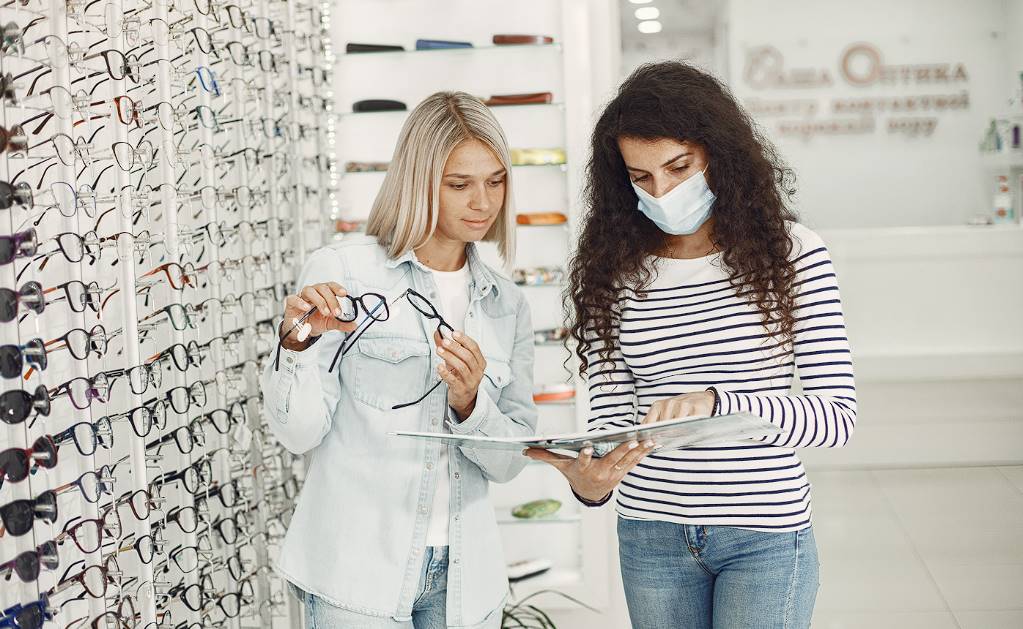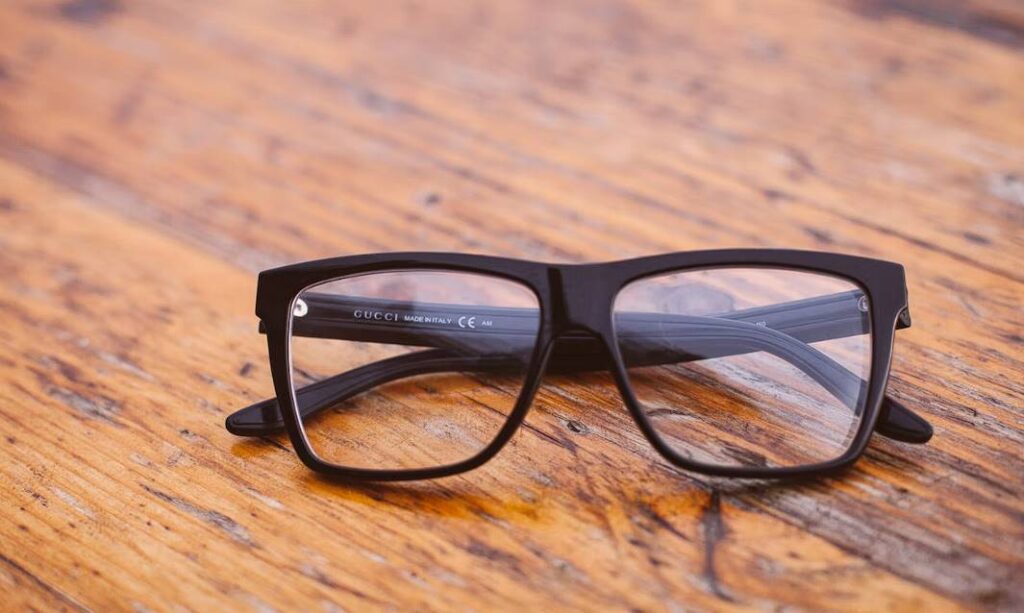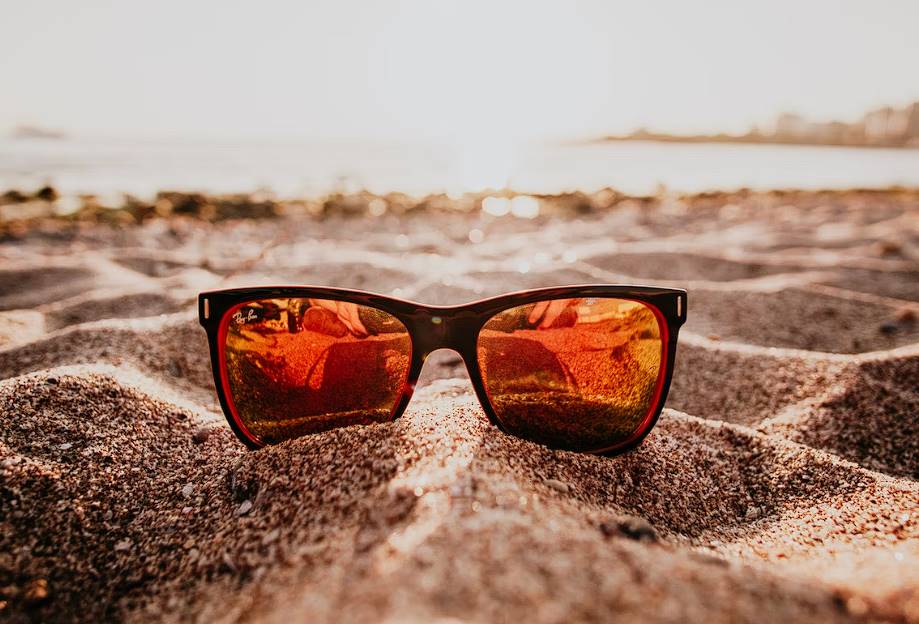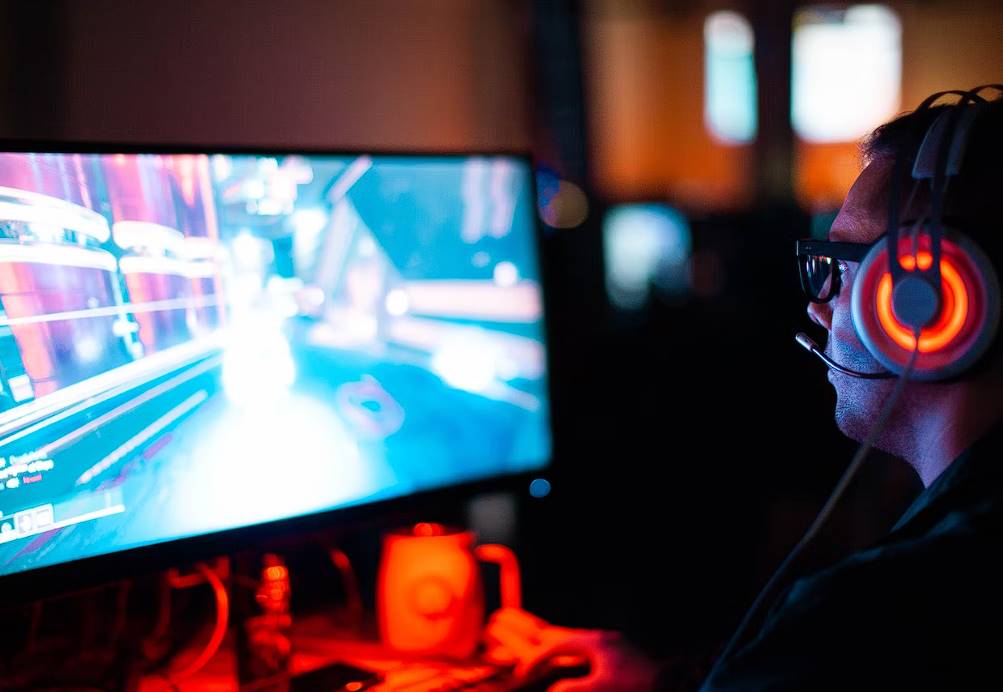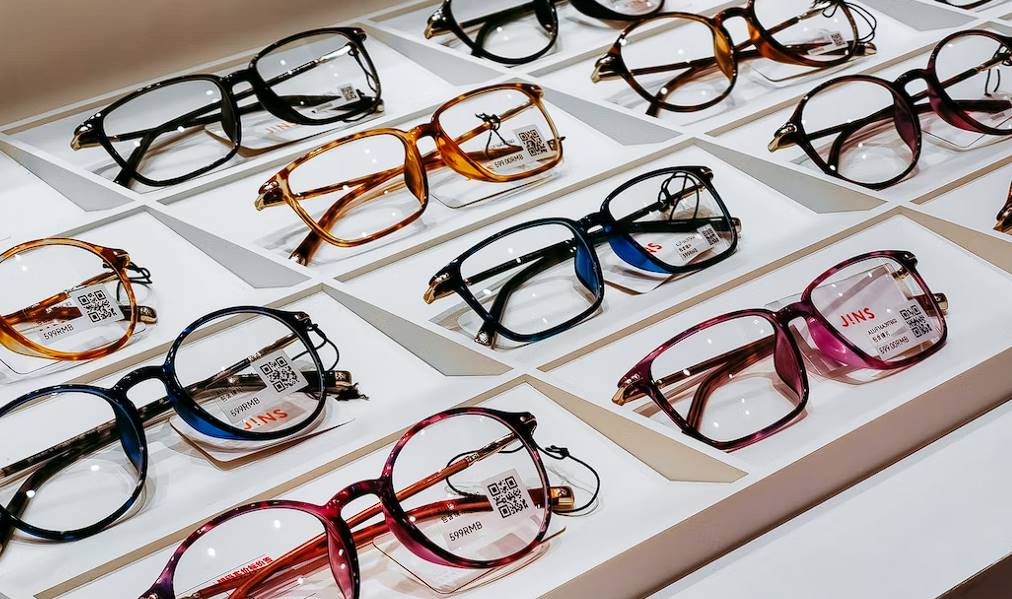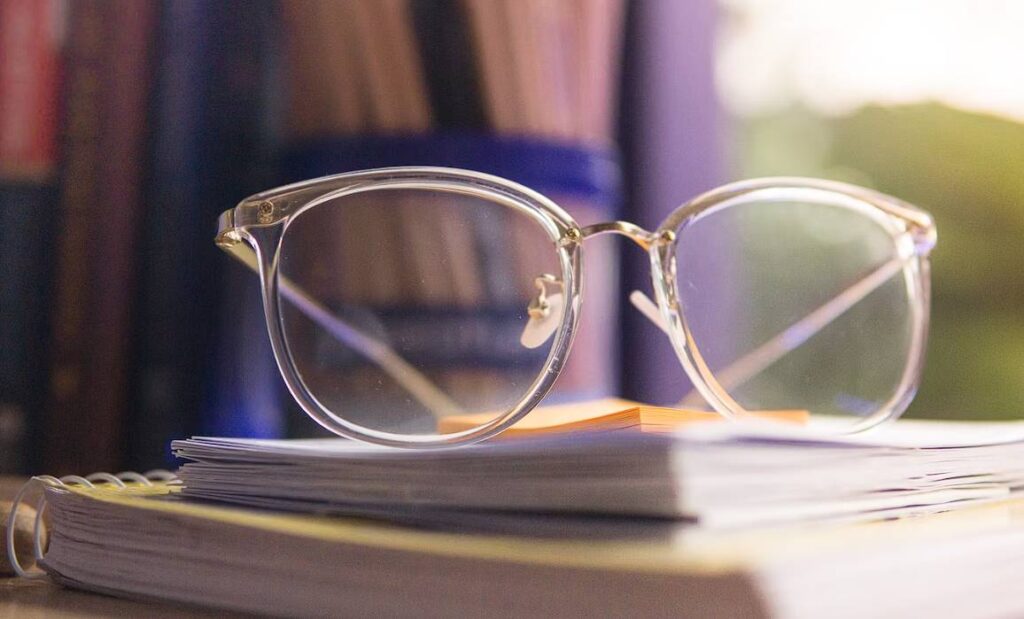These days, it seems impossible to escape the presence of a screen, whether it be a smartphone, tablet, computer, or television. These devices have improved our lives in many ways, but they also give off a form of light that may be harmful to our health. Concerns have been raised concerning the effects of this type of light, known as blue light, on our eyes and sleep cycles because of its increasing ubiquity. Blue-light blocking glasses are a novel approach to addressing these issues.
Benefits, such as better sleep and less eye strain, may be attained by using these specialist eyewear solutions to filter out or minimise the amount of blue light that reaches our eyes.
This blog will discuss blue-light filtering glasses, discussing their functioning, benefits, and appropriate users. Learning about this cutting-edge answer equips us to take charge of our eye health in the face of our increasingly sedentary digital lifestyles.
Why Should Your Eyes Be Protected From Blue Light?
When it comes to photochemical retinal damage, blue light is right there next to the ultraviolet spectrum of sunshine. Due to the greater ease with which blue light scatters, images may appear less contrasty. Because of the reduced contrast, prolonged screen gazing may lead to discomfort for the user's eyes.
While a small amount of blue light throughout the day can have positive effects, too much blue light (especially at night) can throw off your body's normal circadian cycle. The sleep-inducing hormone melatonin is suppressed by exposure to blue light.
Research suggests prolonged exposure to blue light may damage the retina, leading to macular degeneration. It would be best if you took precautions to avoid the health risks associated with prolonged exposure to blue light. Blue Light is harmful, but it's practically impossible to avoid in today's digital environment. You may be wondering if wearing sunglasses while using a computer is an effective way to shield your eyes from Blue Light if you still need to own a set of Blue Light glasses.
What Exactly Is Blue Light?
Light, especially sunlight, contains blue light as one of its many wavelengths. Blue light has a relatively short wavelength compared to other colours of light. This is significant since doctors have linked exposure to light with shorter wavelengths to a higher risk of eye injury.
While most electrical devices (even light bulbs) give off some blue light, computer and television screens often give off more than other electronic devices. This is because LCDs, or liquid crystal displays, are widely used in electronics such as computers and televisions. Although these displays produce a more vibrant and clear image than their non-LCD predecessors, they also emit more blue light.
Exposure to high levels of blue light is associated with
- impact your circadian cycle, making it difficult to sleep at night
- bring on headaches
- increase eye strain
- result in visual fatigue
Blue light has several positive uses as well. This wavelength of light, which the sun emits, has been shown to stimulate wakefulness and serve as an alarm clock.
Most of the research into the link between blue light and eye damage has been done in labs or on animals. This complicates efforts to determine the precise effects of blue light on humans in natural environments.
What Are Blue Light Glasses?
Understanding the nature and origin of blue light helps you appreciate the need to safeguard your eyes. Exactly how are you going to accomplish this? You'll need to wear glasses. Blue light glasses can be custom-built for you, and polarised sunglasses can assist in filtering the sun's rays.
Blue light glasses, then, are eyewear that shields the wearer's eyes from harmful light wavelengths by using a particular filter built into the lenses. These protect your eyes from the blue light given off by electronics such as computers and smartphones. The good news is that blue light protection glasses can be purchased with or without a doctor's prescription.
How Can Sunglasses Block Blue Light?
Most sunglasses have UV400 lenses, which filter out 99 to 100% of the sun's harmful rays and reduce glare. Sunglasses with built-in blue-light filters improve clarity and comfort when using electronic gadgets. Yet, the true secret lies in the shade of the lenses.
It's important to inspect the lens colour while purchasing sunglasses, much like the blue light glasses illustration shows. Lenses with a deep amber, copper, yellow, orange, or brown hue should be your top choice. These lens colours block out blue light and boost contrast, making them ideal for use both inside and out.
If you want to be sure your sunglasses shield your eyes from blue light and UV rays, we suggest consulting with an ophthalmologist for advice and lens coating alternatives. So, can blue light from screens be prevented by polarised sunglasses? Steer clear of them. The polarisation filter might impair your eyesight when staring at electronic displays like laptops or LED televisions.
How Can Sunglasses Be Used As Blue Light Blocking Glasses?
Having established that sunglasses can serve as a form of protection against potentially damaging blue light, you may be wondering how effective they are and how much protection they can provide compared to a more basic computer or blue light glasses. The solution is elementary: Sunglasses, like blue light glasses, can filter out harmful blue light well. But the hue of your sunglasses' lenses can affect this. Especially in an enclosed space, it might not be the best choice.
In contrast, photochromic lenses will shield your eyes from the sun's UV rays and the blue light emitted by electronic devices, making it easier to adapt to indoor and outdoor environments. Sunglasses can be helpful if you plan on using a computer or smartphone while sitting outside on a balcony or in a park. They'll block out UV radiation from the sun and the potentially damaging blue light emitted by electronic devices. Computers or women's and men's blue light glasses provide superior protection when using digital screens indoors.
Want the very best of both worlds? Thanks to photochromic lenses, sunglasses in the sun, and blue-light protection at home! You no longer have to worry about taking your glasses off or switching them for indoor and outdoor use. Outside, your sunglasses will provide the best protection possible, while inside, your blue light glasses keep your eyes safe.
What Effect Does Blue Light Have On The Eyes?
The various ways in which the eyes are affected by blue light are as follows:
Interrupted Sleep
The research on how blue light affects one's ability to fall or stay asleep is extensive. The timing of melatonin production is altered.
The body's internal clock, known as the circadian rhythm, gets thrown off by this. 8 This can disrupt your body's natural sleep-wake cycle, leading to sleeplessness, irritability, and exhaustion.
Retinal Damage
Blue light has been shown to cause retinal cell death when exposed to it continuously. This may lead to age-related macular degeneration and other vision issues.
Exposure to blue light has also been linked to the following:
- Eye cancer
- Cataracts
- Growths on the white part of the eye's clear covering
- Sleeping disorders
Digital Eye Strain
Digital devices and computer screens emit a significant amount of blue light. When utilising digital devices, people also have a tendency to blink less frequently. This lowers the contrast, which might contribute to strain on the eyes caused by digital work.
Other typical eye strain symptoms include:
- Blurred vision
- Headaches
- Pain in the neck and shoulders
Between 27 and 35% of digital device users have reported feeling at least one of these effects. As more and more people use LED-powered devices, their exposure to blue light increases.
Using Blue Light-Blocking Sunglasses Has Several Benefits
There are several advantages to wearing blue-light-filtering sunglasses, especially in today's technologically advanced environment. These high-tech shades block or significantly reduce exposure to eye-damaging blue light. Some significant benefits of blue-light-blocking eyewear include the following:
Reduced Eye Strain And Fatigue
Extended usage of electronic devices can lead to dry eyes, headaches, and exhaustion from staring at the screen. Sunglasses that filter out blue light can help ease these symptoms by decreasing the amount of blue light reaching the eyes. Especially after staring at a screen for long periods of time, this can help reduce eye strain and make viewing more pleasant.
Prevention Of Long-Term Eye Health Problems
According to certain studies, prolonged exposure to blue light may be a factor in the development of long-term eye health issues such as age-related macular degeneration. Blue light-blocking sunglasses can assist in maintaining the health of our retinas and minimise the chance of developing other vision-related disorders by minimising exposure to blue light. This is accomplished by reducing the amount of blue light that enters the eye.
Versatility And Style
You won't have any trouble finding a pair of sunglasses that can protect your eyes from blue light because such a wide variety of designs and patterns can be purchased. Several styles of sunglasses block blue light, such as traditional aviators, stylish wayfarers, and sporty wrap-around frames. You can find sunglasses that meet your personal preference.
All-Day Eye Protection
Not only does blue light emanate from digital screens, but it is also present in the light that comes from the sun. When you go outside, protecting your eyes from natural and artificial sources of blue light by wearing sunglasses blocking blue light is the best way to be safe. This helps limit the cumulative effects of exposure to blue light throughout the day and ensures that proper eye care is maintained throughout the day.
Improved Sleep Quality
Blue light exposure is most problematic in the evening and at night and disturbs our natural sleep-wake cycle. The hormone melatonin is responsible for regulating sleep, and the blue light emitted by electronic devices decreases its production. Try wearing sunglasses in the evening to reduce exposure to blue light and improve the quality of your night's sleep.
Improved Contrast And Visual Clarity
Sunglasses that filter out blue light can improve both the clarity of vision and the contrast, particularly in environments with a lot of glare. These sunglasses can enhance one's sense of colours and details by selectively blocking blue light; as a result, wearing them enables a more pleasurable visual experience.
Alternatives For Blue Light Protection
Overexposure to Blue Light is becoming a growing concern as smartphones, tablets, TVs, and computers become increasingly central to our daily lives. While wearing polarised sunglasses, such as Felix Gray's blue light filtering polarised sunglasses, can help protect your eyes, there are other measures you can take to lessen the damage.
Use Blue Light Glasses
Blue light-blocking sunglasses provide the most comprehensive protection. There's no way to avoid staring at a computer screen all day, and if you don't take care of your eyes now, dryness and strain will only get worse. Getting a pair of glasses sooner rather than later might help alleviate ocular pain and safeguard your eyesight.
Adjust Device Settings
The display's colour temperature on virtually all modern electronic devices, including mobile phones, tablets, and desktop and laptop computers, can be altered through various settings. You may make the screen feel warmer and less strain on your eyes by lowering the blue light emitted by your electronic device. For iOS devices, this feature may be activated by selecting "Night Shift," and on Android smartphones, it can be activated by selecting "Night Light."
Limit Screen Time
Spending less time in front of screens is one of the easiest things you can do to lower your exposure to blue light. It's important to take pauses from using technology, especially for extended periods of time. Try reading a book, going for a walk, or talking to people face-to-face instead of staring at a screen.
Optimise Lighting Conditions
It's important to have adequate lighting when working on electronic devices. To prevent eye strain, you should avoid screens when it is too dark or bright. Indirect or natural lighting that does not cast shadows or generate glare on the screen is preferable.
Consider Blue Light-Blocking Eyeglass Filters
If you already use prescription eyeglasses, talk to your optometrist about the possibility of adding blue light-blocking filters to your glasses lenses. These filters can be tailored to your particular prescription and offer protection from blue light without wearing glasses specifically designed to block out blue light.
Blue-Light-Blocking Eyewear Purchasing Guidelines
Although blue-light blocking glasses are widely sold, they have yet to receive support from major eye professional associations.
Nonetheless, if you would want to give blue-light-blocking glasses a try for yourself, here are some things to take into consideration:
- Where to Purchase: Many large stores that sell sunglasses also sell glasses that filter out blue light. Blue-light-blocking coatings are available on prescription eyeglasses from some online eyeglass makers.
- UV protection: Be sure that your glasses offer protection from ultraviolet light if you intend to wear them while spending time outside in the sunlight.
- Comfort: The focus on comfort is typical of the best brands of eyewear today. Try to find frames that don't weigh you down, don't slip down your nose, and don't press too hard against your ears.
If you haven't tried blue light glasses before and are curious if you'll like them, a cheap, lightweight pair is a good place to start.
Conclusion
The increasing popularity of blue-light-blocking spectacles represents a fresh strategy for mitigating the negative effects of blue light on human eyes and circadian rhythms. These specialised glasses reduce the amount of blue light that enters the eyes, leading to improved sleep and reduced eye strain.
Blue light, with its shorter wavelength, is particularly dangerous to the eyes. Many electronic gadgets, including computers and televisions, generate blue light that can disrupt sleep patterns, lead to headaches, eye strain, and visual tiredness. While there are many beneficial applications for blue light, it also serves as an effective alarm.
UV400 lenses in polarised blue light glasses block 99 to 100 percent of the sun's damaging rays while also lowering glare. Sunglasses with built-in blue-light filters make using electronic devices easier on the eyes and more comfortable for the user. However, the colour of the lenses is the real key. To reduce exposure to blue light and increase contrast, your best bet is to wear lenses with a rich amber, copper, yellow, orange, or brown tint.
Sunglasses can shield your eyes from blue light, but the colour of the lenses can make a difference. Having photochromic lenses can help you adjust more quickly between indoor and outdoor settings by protecting your eyes from UV rays from the sun and the blue light from electronic devices. In-home digital screen use is best protected by computers or women's and men's blue light spectacles.
Negative consequences of blue light on the eyes include difficulty falling asleep, erratic melatonin production, and headaches. Protecting our eyes from the detrimental effects of blue light in today's digital environment requires an awareness of the nature and origin of blue light. A lack of sleep, irritation, and fatigue can result from blue light disrupting the body's circadian rhythm. Sleep difficulties, cancer of the eye, cataracts, and retinal damage are additional possible side effects. Blue light emitted by digital devices and computer screens is a known source of digital eye strain, which manifests itself in symptoms like impaired vision, headaches, neck and shoulder pain, and fatigue. Somewhere between 27% and 35% of people who often use digital devices say they feel this way.
Reduced eye strain and weariness, prevention of long-term eye health concerns, enhanced sleep quality, and enhanced contrast and visual clarity are just some of the benefits gained from wearing blue light-blocking sunglasses. They come in a wide variety of shapes and designs, from classic aviators to trendy wayfarers to athletic wrap-arounds.
Blue light glasses, altering device settings, decreasing screen time, increasing natural light, and improving lighting are all viable options for reducing exposure to blue light. You won't need special blue-light-blocking glasses if you have these filters custom-made for your prescription.
However, major eye professional organisations have not endorsed the use of blue-light filtering glasses despite their widespread availability. If you're interested in trying out some glasses that filter out blue light, you should think about where you can get them, how comfortable they are, and whether or not they offer any protection from UV rays. The best place to start if you're curious about blue light glasses is with a lightweight, low-cost pair.
Content Summary
- These devices have improved our lives in many ways, but they also give off a form of light that may be harmful to our health.
- Concerns have been raised concerning the effects of this type of light, known as blue light, on our eyes and sleep cycles because of its increasing ubiquity.
- Blue-light blocking glasses are a novel approach to addressing these issues.
- Benefits, such as better sleep and less eye strain, may be attained by using these specialist eyewear solutions to filter out or minimise the amount of blue light that reaches our eyes.
- Learning about this cutting-edge answer equips us to take charge of our eye health in the face of our increasingly sedentary digital lifestyles.
- While a small amount of blue light throughout the day can have positive effects, too much blue light (especially at night) can throw off your body's normal circadian cycle.
- Research suggests prolonged exposure to blue light may damage the retina, leading to macular degeneration.
- It would be best if you took precautions to avoid the health risks associated with prolonged exposure to blue light.
- Blue Light is harmful, but it's practically impossible to avoid in today's digital environment.
- You may be wondering if wearing sunglasses while using a computer is an effective way to shield your eyes from Blue Light if you still need to own a set of Blue Light glasses.
- While most electrical devices (even light bulbs) give off some blue light, computer and television screens often give off more than other electronic devices.
- This is because LCDs, or liquid crystal displays, are widely used in electronics such as computers and televisions.
- Although these displays produce a more vibrant and clear image than their non-LCD predecessors, they also emit more blue light.
- Most of the research into the link between blue light and eye damage has been done in labs or on animals.
- Understanding the nature and origin of blue light helps you appreciate the need to safeguard your eyes.
- You'll need to wear glasses.
- Blue light glasses, then, are eyewear that shields the wearer's eyes from harmful light wavelengths by using a particular filter built into the lenses.
- These protect your eyes from the blue light given off by electronics such as computers and smartphones.
- The good news is that blue light protection glasses can be purchased with or without a doctor's prescription.
- Sunglasses with built-in blue-light filters improve clarity and comfort when using electronic gadgets.
- Yet, the true secret lies in the shade of the lenses.
- It's important to inspect the lens colour while purchasing sunglasses, much like the blue light glasses illustration shows.
- If you want to be sure your sunglasses shield your eyes from blue light and UV rays, we suggest consulting with an ophthalmologist for advice and lens coating alternatives.
- So, can blue light from screens be prevented by polarised sunglasses?
- Steer clear of them.
- Having established that sunglasses can serve as a form of protection against potentially damaging blue light, you may be wondering how effective they are and how much protection they can provide compared to a more basic computer or blue light glasses.
- The solution is elementary: Sunglasses, like blue light glasses, can filter out harmful blue light well.
- But the hue of your sunglasses' lenses can affect this.
- Especially in an enclosed space, it might not be the best choice.
- In contrast, photochromic lenses will shield your eyes from the sun's UV rays and the blue light emitted by electronic devices, making it easier to adapt to indoor and outdoor environments.
- Sunglasses can be helpful if you plan on using a computer or smartphone while sitting outside on a balcony or in a park.
- They'll block out UV radiation from the sun and the potentially damaging blue light emitted by electronic devices.
- Computers or women's and men's blue light glasses provide superior protection when using digital screens indoors.
- Thanks to photochromic lenses, sunglasses in the sun, and blue-light protection at home!
- You no longer have to worry about taking your glasses off or switching them for indoor and outdoor use.
- Outside, your sunglasses will provide the best protection possible, while inside, your blue light glasses keep your eyes safe.
- This may lead to age-related macular degeneration and other vision issues.
- There are several advantages to wearing blue-light-filtering sunglasses, especially in today's technologically advanced environment.
- These high-tech shades block or significantly reduce exposure to eye-damaging blue light.
- Sunglasses that filter out blue light can help ease these symptoms by decreasing the amount of blue light reaching the eyes.
- According to certain studies, prolonged exposure to blue light may be a factor in the development of long-term eye health issues such as age-related macular degeneration.
- Blue light-blocking sunglasses can assist in maintaining the health of our retinas and minimise the chance of developing other vision-related disorders by minimising exposure to blue light.
Frequently Asked Questions
Cleaning your glasses daily is not mandatory, but it is highly recommended to prevent eye strain. Regular cleaning helps maintain optimal vision by removing dirt, oil, and smudges that accumulate on the lenses. By keeping your glasses clean, you ensure that your eyes can see through them clearly without the need for additional effort, reducing the risk of eye strain.
Keeping your glasses clean offers several additional benefits beyond preventing eye strain. Clean glasses provide clearer vision, enhancing your overall visual experience. Moreover, clean glasses reduce the risk of smudging your lenses or obstructing your view due to dirt and fingerprints. By maintaining clean glasses, you also extend the lifespan of the lens coatings and prevent potential damage that could compromise their functionality.
Yes, dirty glasses can worsen existing eye conditions. Individuals with conditions like astigmatism or nearsightedness rely on glasses to correct their vision. When these glasses are dirty, the visual correction they provide becomes compromised. The dirt or smudges on the lenses can amplify the existing vision problems, making it harder to see clearly and potentially exacerbating the symptoms associated with the condition.
Yes, dirty glasses can contribute to headaches and eye pain. When you wear glasses with smudges or dirt, your eyes may have to strain to compensate for the reduced clarity. This constant effort can lead to eye muscle fatigue and tension, which can trigger headaches. Additionally, the strain on your eyes can cause discomfort and pain in and around the eye area.
When cleaning glasses, it's best to use a mild soap specifically formulated for eyewear or a lens cleaning solution. Avoid using harsh chemicals, ammonia-based cleaners, or abrasive materials as they can damage the lens coatings. To clean your glasses, gently rub the lenses with your fingertips or a soft, lint-free cloth in a circular motion. Rinse them thoroughly and pat dry with a clean microfiber cloth to avoid scratching the lenses.




